In a delightful piece of counter-programming this weekend, I didn’t see Dunkirk. I went to see The Big Sick, the little romantic-comedy starring Kumail Nanjiani and Zoe Kazan. I LOVED it. It was a very satisfying film on every level – it was laugh-out-loud funny, it worked as a love story, it worked a dark-humor comedy, and there was enough drama within the story to keep it anchored in reality. Kumail and Zoe’s characters meet and fall in love, even though Kumail is supposed to find and marry a nice Pakistani Muslim girl. Then Zoe’s character gets sick and ends up in a coma and Kumail has to spend weeks working out everything with her parents, played by Holly Hunter and Ray Romano. I can’t recommend this film enough to everyone! Anyway, Kumail has a new interview with The Telegraph and it’s lovely. HE is lovely. Some highlights:
What he thinks of Muslim/Pakistani representation in Britain. “Just from walking around and watching British television, I feel you are more integrated than we are in America. There are people who are matter-of-factly brown on television in Britain – there will be, like, an [Asian] constable… in America it’s always a statement. It’s like, ‘Oh, look at the diversity we have!’”
Whether ‘The Big Sick’ is a screw-you to Trump’s Muslim Ban. “No, that was never our intention. We didn’t want to make any kind of political or social statement. We just wanted to tell our story. We were aware that in American pop culture there weren’t that many depictions of matter-of-factly Muslim families, but really we just wanted to portray the relationship I have with my family, which is very loving, despite the disagreements.”
The pressure to have an arranged marriage was real. “In real life, it was more emails and phone calls and pictures. ‘Hey, you remember when we were at that party and there was that girl there? Anyway, she’s of a certain age now…’ There was a lot of that. There was a lot of pressure. I wasn’t into the idea, but also couldn’t imagine a world where it didn’t happen. I was just trying hard not to think about it.”
When Emily Gordon – then his girlfriend- got sick in real life: “I hadn’t been thinking about marriage before Emily got sick. But looking at her when she was first put into the coma, I thought to myself, ‘If she comes out of this, I’m going to marry her.’”
Dealing with her parents: “It was very awkward at first. I didn’t know how to be around grown-ups” – he was earning hardly any money and suffering from a severe case of extended adolescence at the time – “and slowly we became a unit, going through various levels of despair, elation, sadness, hopelessness and hope and bonding over this one thing that only the three of us could understand.”
What it means to be one of the few Muslim actors on TV: “There is pressure on each specific thing to represent the experiences of a whole group of people. But I don’t represent the Muslim community, I just represent my story. The only way to represent a whole group of people is to have a whole bunch of stories because there are as many different kinds of Muslims as there are different kinds of people.”
The film doesn’t have a political message, really: “I don’t think of myself as enlightened in the movie. When I tell my parents that I’m in love with Emily, it is my dad who has the last word in that scene. He says, ‘The American Dream doesn’t mean you can do whatever you want and not worry about other people.’ We are saying these are two different perspectives. One is not right and the other wrong – they are both people trying to do their best.”
I’m surprised that he thinks British film/television is somehow better at diversity than American film/TV. I don’t think either does diversity very well, but out of all the options, American television seems to be more willing to embrace diversity and inclusion. I’d also like to point out that it would be very easy for Kumail to talk sh-t about Donald Trump in every interview – and that’s what reporters would love too – but he hasn’t. He doesn’t want to be the Pakistani-American actor who becomes some kind of liberal/progressive symbol. And he shouldn’t have to be that guy. White actors, non-Muslim actors get to talk about their art without it becoming about politics and religion. Let Kumail be Kumail.
Photos courtesy of WENN.

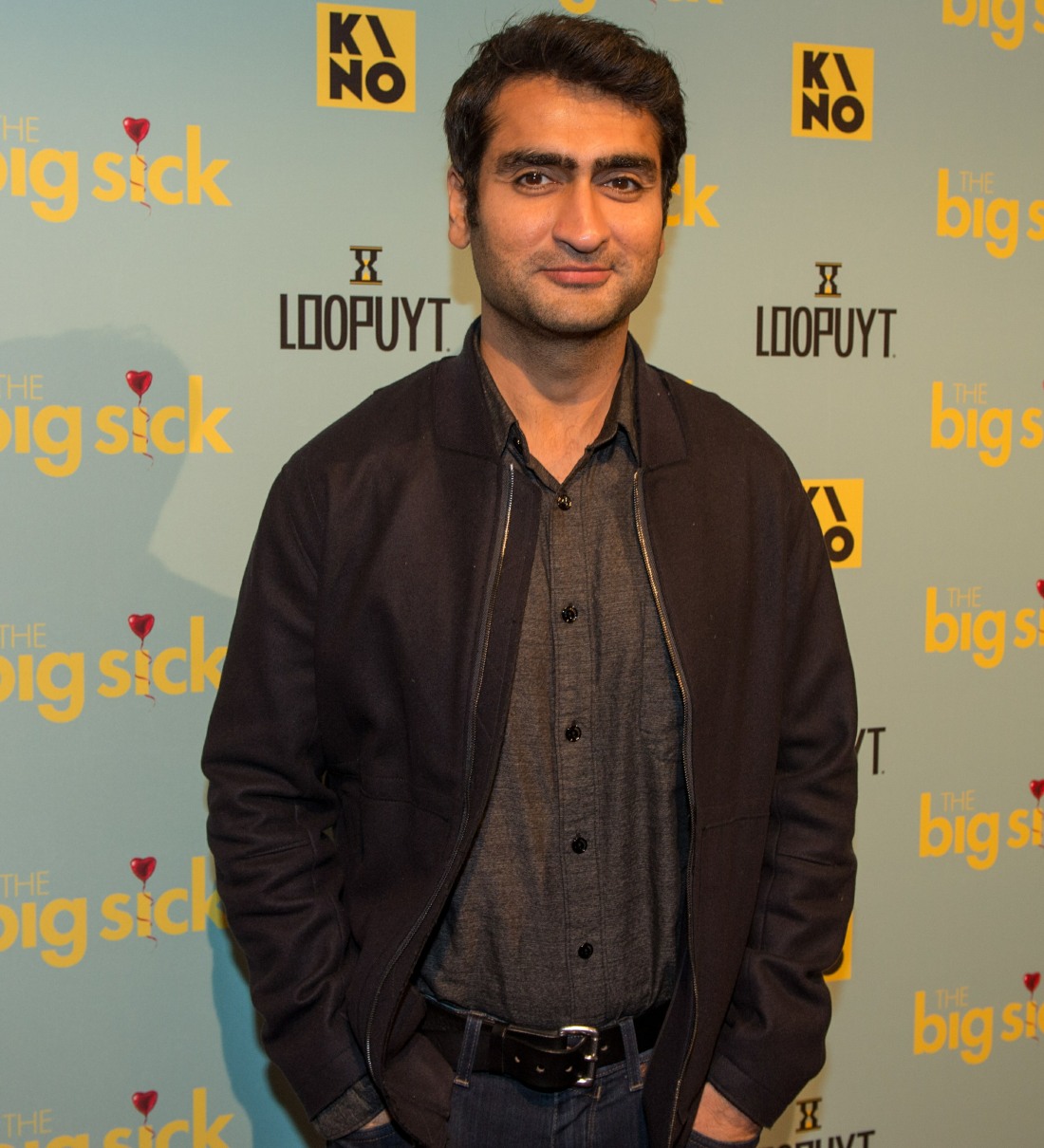
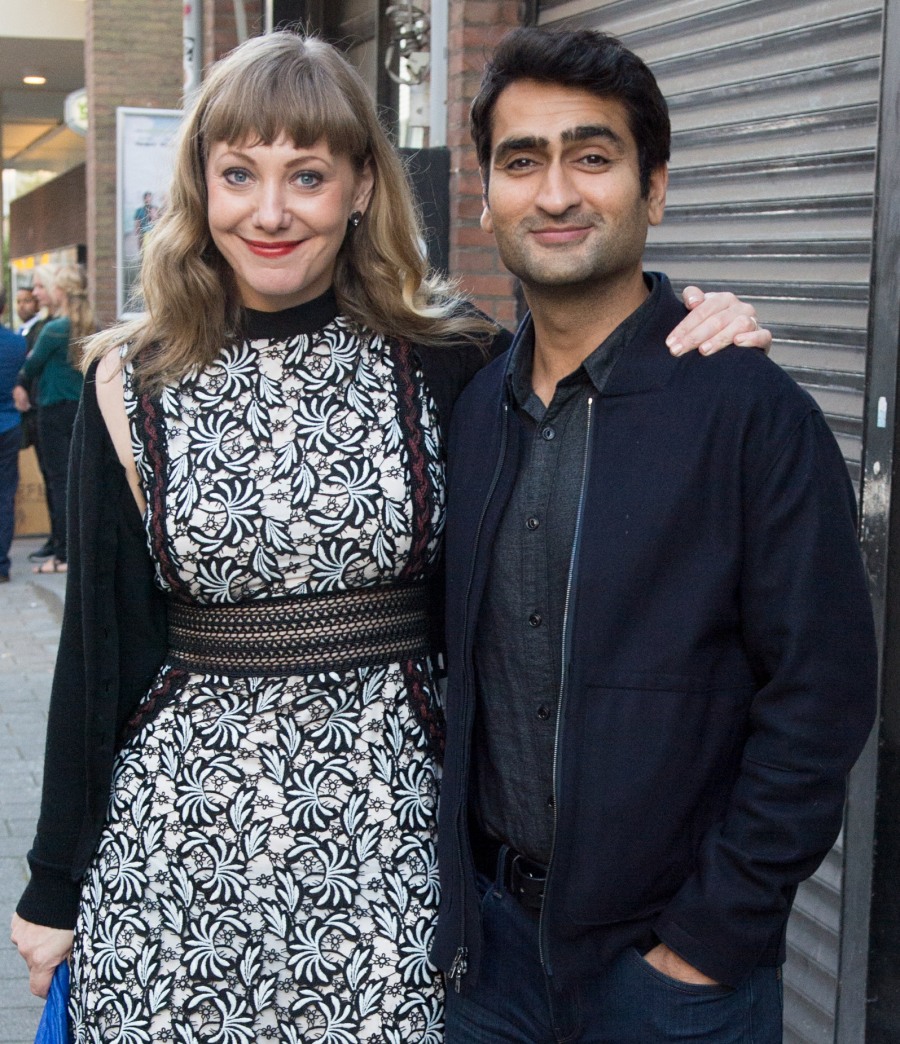
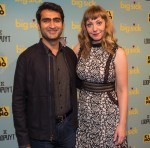
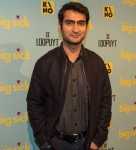
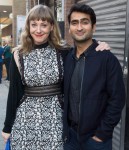
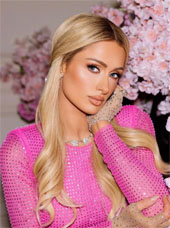
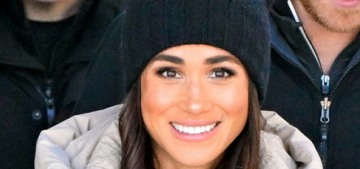
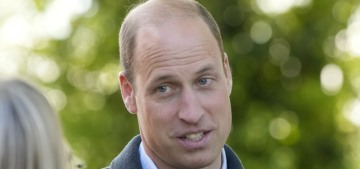
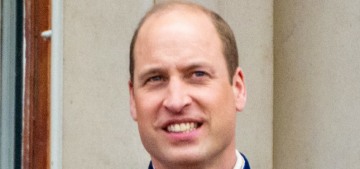
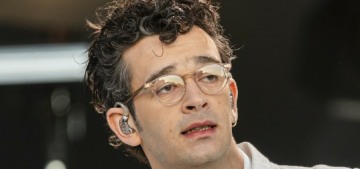
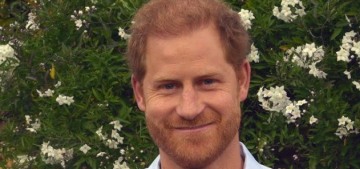




I know what he means. He’s saying diversity is a function of US TV but seems to him to be more integrated in UK TV.
But I think this is more a function of the way TV works either side of the Pond. US TV is dominated by 20-odd episode soapy/procedural shows and I do watch them and get a bit of an impression that the casting has been a tick box of the black one, the brown one, the gay one – there, job done. British TV has less money to spend and so is dominated by 6-episode beginning-middle-end storytelling. So it’s obviously going to seem as though the characters occur more naturally. If you watch one of our continuing dramas that are similar to US TV seasons, such as Casualty, the casting looks equally tick box-y.
I agree that we’re both pretty rubbish regardless of the different ways of going about beginning to tackle it.
English tv is probably a bit more open, like other european tv. You dont see the secretary looking like Angelina Jolie on her wedding day for example. They look like actual people mostly. Its still closed off for most people, in england class is a huge point but at least from the outside it looks more like everyday life than american tv.
In terms of body shape, appearance and age, European TV and movies are much much more diverse than in America. In terms of race and ethnicity it does depend on how diverse the country itself is.
Class and access is definitely a big issue for actors in the UK.
I agree. My mail does not say British TV is more diverse, he is saying American TV is tick-boxy as you said. I can actually see that. For example British TV has more mixed couples than American one. They are just casually there.
I have my problems with diversity of British TV as a brown woman. We are very very underrepresented in media. I don’t really get why. Even when people try to make something more diverse, brown actors somehow don’t come up. ( black James Bond, woman James Bond, black doctor, woman doctor) Don’t get me wrong. I am not begrudging black people or women the already limited opportunities they get. I am just confused that as the biggest minority in UK, we rarely factor in these decisions.
There are a bunch of brown women including muslim brown women who are none to happy with their representation in Kumail’s movie. There are what I believe to be valid critiques about the portrayal of the Pakistani women who are his arranged marriage prospects.
Sadly when this critiques have been brought up, the women have been labelled as jealous or not understanding how love works etc. They miss the real issue which is that there is so little representation of brown women or men in film and a brown man who is fully aware of this presents brown women as shallow caricatures. It’s sad to me that a script written by a brown man and a white woman is unable to depict the humanity of brown women.
sounds like yal are dealing with some of the things that black women face…. our men will draft up caricature of us or either assist in the erasure of our stories in media….its sickening.
Speaking of British/American differences reminds me my trip to the Lake District in the early 90s. My mother in law (rural NY state*) said Oh you’ll see all the punk people! A friend in the lake district said You live in New York? That’s where all the punk rockers live! There used to be thing called slow news days and the networks would end on some kind of look-at-the-silly-people-on -the-other-side-of-the-pond note.
I am eager to see Dunkirk as well as the Big Sick!
*For the record that’s almost all of it -number one industry = farming.
If you haven’t seen The Big Sick, I highly recommend it. Also recommend the older documentary Meet the Patels. Both touch on some of the same themes and both are really funny.
Saw Meet the Patels and loved it! Seeing Sick tomorrow. Saw it at our lttle 95 seat independent theatre which the Scrooge lease owner was going to force to close, but we rallied and raised money via GoFundMe and the Crescent stays! Yay!!!
Well there is a simple reason for this – India/Pakistan were a British colony and Indian/Pakistani immigrants have had diaspora here (in the UK) for a lot longer than the US.
I did some of my doctoral fieldwork in Pakistan, and a lot of the older, wealthy folks still refer to themselves as ‘Anglo-Indian’ because they were born and raised under British rule.
There were also hundreds of thousands of Brits who went back and forth between Britain and India/Pakistan during the ‘raj’. There are still plenty of people around who are ‘white British’ who were either born in or raised in India before and after independence.
Not to mention, simple stats – there are more ‘Asians’ (British for South Asian), here with respect to overall population, than there are in the US. They have been here longer. They have been a ‘normal’ part of society for longer. So obviously there is a smidge more representation, on television etc. Having said that, the representation has historically been mockery (IMO).
I mean, this is not a surprise. I’m kind of always a little confused when people act like this is a really big deal…surely its…normal?
I agree.
I think UK shows have more roles for South Asian actors than the US, they are far less stereotypical. However, black actors find more roles in the US as there are more opportunities in the US. But with peak TV, the commitment to diversify is improving.
Having worked in the media industry in both the UK and North America, I would add that it’s much more likely that casting in the UK is less likely to have a specific race/weight qualification.
So, if you were applying for something like, say
– a recurring role in a cop show, maybe something like a admin assistant
– worker in the regular coffee shop
etc., who the audience will maybe recognise but not see as a main character, the US show would probably come with a very specific stereotypical casting. “Sassy black lady”. “Indian guy with Apu-like accent”. “Dizzy blonde”. “Caricature of a 90s flamboyantly gay man” and so on. The UK casting will be less likely to read like this – if the person they like for the role happens to be a Sikh, or a not-stick-thin woman, or a POC with a standard accent, they’ll cast that person.
But as pointed out above, a lot of that has to do with how much lower the budgets are.
One thing that stuck out for me at a certain interview. When kumail was getting married, the qazi whose mobile ringtone played beyonce , refused to marry him if the bride didn’t convert and she agreed to convert if only for the day.
He was trying to point out the hypocrisy of the qazi but I found a few things not to my taste.
If I fall in love with someone from other religion, i would expect that person to respect my thoughts on religion too. If I am not comfortable with converting, even for a day, the man I love, shouldn’t he also be understanding enough to not press for a religious ceremony?
I understand his fiancé had no issues
As a practising Hindu, I am often confronted with this question with the people I date. You are Hindu, you consider all religions same. So if we were to get married, what’s the diff if you convert for a day/ promise to raise the kids in my religion
I don’t understand why it cannot be religion neutral legal marriage
The kids can know about both and choose after they turn 21 maybe
And respecting all religion doesn’t mean I have to show active proof by symbolically denouncing mine. I am not denouncing my parents to show respect to someone else’s parents.
Some of my friends are also a little extreme like that. We love you as long as you accept our religion is best and that you should someday try to see th catholic/ evangelical/ jewish/ muslim light. And it seems even more when they hear I am Hindu. Somehow it automatically interprets as idol worshiping silliness and malleable to our thoughts.
And the other side of the sprectrum are the Indian guys I meet who do not even like to socialize with anyone outside their culture or subculture beyond workplace formalities
Just some random thought I had wrt to this guy.
Since I am a first gen immigrant living in europe and trying to find a balance between two worlds without losing my identity or compromising my self respect.
I didn’t understand why he couldn’t put his foot down and say then i am happy to just legalise our union.
Anyway enough of rambling
Thank you for sharing your story…I love hearing others’ experiences, especially when I come away with really seeing another perspective. I may not be very clear, but thanks!
Well, he mentioned in the same interview that they also held a Western Christian ceremony for her side of the family, as well as the Muslim ceremony for his and then their immediate family all had a joint party. Most interfaith couples I know did or plan to do something similar. It’s not as if it was only his Muslim faith being acknowledged.
Maybe my own experience has colored the way I process my information and I didn’t remember .
Thank you for that.
I am still finding my feet in the entire experience where all of me, ethnicity, religion, character, education, career mindedness will be accepted by one person instead of parts of it by some person.
As I said mindless rambling which I don’t often feel like sharing.
@Tan
I completely understand, I feel the same way!
@Tia – not trying to be mean, but the people you are describing sounds like jerks. There are better people out there, who love/accept people of all stripes without imposing their shit on them.
If you’re around people who need to somehow impose their moral or religious superiority on you….they aren’t your friends.
Lots of people have interfaith/religious neutral/inter cultural marriages – they make them work by respecting each other and not being assholes. Part of that may (or may not) be sitting through a religious ceremony because that’s what makes your partner happy. Simples.
Kumail is actually an atheist, in fact that has featured in his standup shows, so I take the Christian/Muslim wedding ceremonies to be more of an acknowledgment of and acquiescence to the families’ cultural expectations than any celebration of “faith.”
My cousin had a Sikh ceremony and luncheon on Saturday, which the Catholic Church recognized, and an “American” ceremony and reception on Sunday. Both parties featured Indian and Italian food, although Saturday’s food at the Sikh temple was vegetarian and Sunday’s food included meat and seafood.
The difference being, that he didn’t convert to Christianity, for the Christian wedding. Most Muslim men call themselves atheist or whatever, but absolutely insist their wives convert, just to please the parents and then insist the children be brought up Muslim, again, just to please the parents. Hello, what about the bride’s parents and her heritage? And what kind of a grown ass man, won’t stand up to his parents?
I don’t know where some Americans get this impression that British TV is so undiverse and white… I guess they only watch the period shows like Downton Abbey and such? In which case yes, Britain hasn’t done a great job of historical shows featuring POC. But those shows are a minority and really aimed at a specific (white) British audience. The majority of modern British shows, particularly those aimed at younger people, are very diverse. Skins, Black Mirror, Misfits, Cucumber/Banana, Chewing Gum. Even shows like Broadchurch (set in extremely white rural south England) and Merlin (King Arthur era) featured prominent characters of colour.
All this taking into account that the British population as a whole is considerably whiter than that of the US (about 30% of Americans are POC while Britain is at about 12%).
Can Britain do better? Absolutely we can, no doubt about it. First step would be to have more historical shows featuring POC, as we have a long history in the UK that doesn’t seem to be reflected on TV. We’re also seriously in need of more POC (and women) writers and directors. POC are less likely to be nominated (and win) British awards like the BAFTAs. But we face about the same problems as the US, we’re not some weird bastion of total whiteness.
All that aside, very very pleased that Kumail’s film is being well received, planning on seeing it myself this week.
Did you watch Harlots on ITV Encore/Hulu?
I thought it did a pretty good job of integrating BAME roles into an 18th century period drama.
Not a bastion of total whiteness (and that F*** for that) – but we also have a penchant for misrepresenting and whitewashing our own history on television (for example Indian Summer and that new thing Joanna Lumley is doing) – which I think are incredibly problematic; perhaps even more so than a lack of diversity.
Failure to decolonise is a separate issue but a significant one, I agree.
@Sixer – totally, I guess my point is, there is more to diversity and representation of minorities on TV, than a Asian police constable on a show.
Yes. And – as QueenB said above – class is another issue. Also, diversity is not just front-of-camera.
It seems like a mountain to climb and we’re barely above the foothills! But I do think both sides of the Pond are making progress, albeit at a snail’s pace.
Oh for sure. I think one of the biggest things we can improve on is having more diverse (and accurate) historical shows. It seems like as soon as a show is set pre-1970 it just slips through a this colonial time warp and everyone is white and wasn’t The Empire grand? POC have an incredibly long and varied history in the UK that isn’t represented or told aside from, like you mentioned, background ‘native’ characters in rose-tinted colonial stories.
I think this is partly due to the accepted image (promoted by TV and film) that Britain was just totally white pre-1950, so ‘why would POC even be in those shows unless they’re trying to pander to minorities?’, and that any historical stories centring on specifically POC would be deemed too ‘niche’ by (overwhelmingly white) showrunners; they probably think that it’s all well and good to have a diverse show set in modern day London which is just a reflection of modern life, but who wants to watch a show about say, West Indian immigrants brought over to help with the war effort in the 40s? Or Black British abolitionists? But everyone enjoys a good old white upstairs-downstairs drama, plus it can be exported to America! Add on to this the cost/effort of doing actual historical research about less popular non-white historical topics and I’m pretty pessimistic about the chances of having a solid historical show prominently featuring POC.
I’ve gone a bit rambly here, but all this to say that I agree with you 100%
@Sixer, I haven’t watched Harlots (I was a bit leery of the topic when it first came out) but I’ve read good things about it so may give it a try.
ApAn – Harlots is daft and soapy but it does a genuinely good job of integrating non-white characters in a realistic way (one black character is an ex-American slave but the other is just, y’know, there, being an 18th century black Brit), and putting women with agency front and centre. I liked it, and I was also leery on the topic.
Re: decolonisation – I watched David Olusoga’s recent BBC series and kept thinking to myself what a wealth of material for period drama it contained. We are good at this genre and everyone wants to diversify. So why don’t we commission writers to buy his book and mine it?
It’s probably because we don’t get a lot of it on TV here. Downton Abbey aired on PBS, which every household in America gets. Some people have BBC America, but not all. The Night Manager was on AMC, which most people have if they’ve got a cable package. Everything else is streaming on Amazon and Netflix so you’ve got to go out and look for it.
I definitely see more realistic diversity in British programs (not all of them, obviously).
In a lot of US shows you only see POC at the bottom or top of society. So they’re criminals or judges, doctors or crackheads etc. In British shows you tend to get a lot more POC in more normal roles, like Kumail’s constable example. They’re not just the genius detective or the guy they’re going after, they’re the regular cops. I especially notice the difference with small roles. In the US it’s like the default for a minor role is always white unless there’s a reason for a character to be otherwise, but in the UK you get a lot of Asian, ME and black actors playing, y’know, Witness 1 or Saleswoman 2. It’s not perfect, and it would be great if they could ditch some of the period pieces to make room for more inclusive material, but the modern shows look more like the real world looks.
The thing I really notice is that British shows are better at showing interracial friendships and relationships. It’s so rare in US shows to see more than one minority represented in a friendship group, or to see more than one interracial relationship in the same show.
Of course Britain only produces so much, and a lot of it is Downton-ish crap and Austen type remakes, so there is far more work for POC actors in the US irregardless.
This is what I thought he was getting at, too.
British TV = better at naturalistic casting. Not British TV = more diversity.
The UK is quite mixed when it comes to interacial relationships. In the 2011 census 9% of all couples are of mixed group an increase from 7% in 2001.
Black Carribbean men were the most likely to have a partner of a different race (over 40%)
For South Asian and Chinese women are the ones most likely to be in a interacial couple in their ethinc group.
I’m not saying the UK is some kind post racial society or anything but interracial couples are no big deal for most ethnic groups in the UK and the UK is far less segragated that the US when it comes to housing.
I think the US may have more roles for people of colour, but they’re more likely to be token characters to avoid controversy. In the UK the roles tend to just be roles instead of statements, I believe that’s what he meant. Also, the ethnic diversity isn’t entirely comparable, in the UK over 85% is white, whereas in the US it’s less than 75%, meaning that for accurate representation at least 1 in 4 American roles should be for POC, right now they’re very far removed from that.
Yeah, often a character’s (non-white) race on American TV plays into his/her characterization or a plot, whereas with a lot of UK TV I’ve seen, non-white people *generally* aren’t there to convey a message.
I loved The Big Sick. One of the best movies I’ve seen in a while.